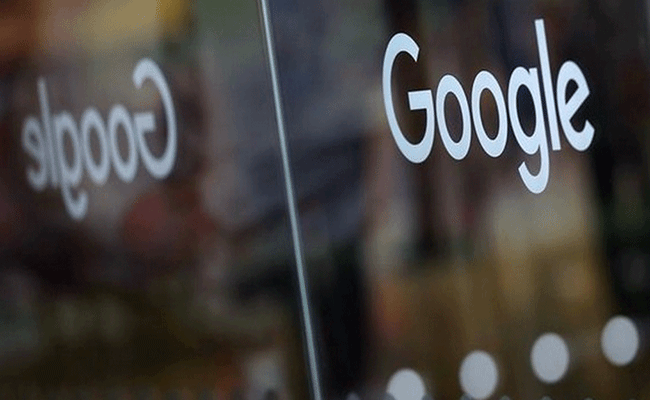London (The Conversation): Google's dominance as the most visited website has been undisputed since it rose to prominence as the leading search engine in the early 2000s.
However, that position could now be facing its biggest ever threat, with the arrival of new artificial intelligence (AI) chatbots such as ChatGPT, which can answer people's questions online.
Google is countering by developing its own AI products. But its chatbot, Bard, didn't have the most auspicious start. This month, a Google advert showed that Bard had provided an inaccurate answer to a question about the James Webb space telescope.
Plus, being the most popular website in the world comes with much more than prestige, namely incredible wealth from advertising revenue. But recent, sudden shifts in the technology landscape have created uncertainty for the likes of Google.
The advertising revenue stream that aided its success may no longer be a given. If AI chatbots such as ChatGPT begin carrying adverts, it could cut into Google's leading position in the world of search engine advertising.
People's reliance on Google has often been without question, so much so that people may not click beyond page one of a Google search results page. But the emergence of new AI platforms has shown that search as we know it does not have to end with a set of ordered links to websites. Instead, as the chatbots are showing, it can take the form of a conversation.
Such AI has not been without controversy. Concerns have been raised that it could lead to issues regarding plagiarism or even worse, the loss of jobs and income for a multitude of professions, from lawyers to journalists.
The chief executive of OpenAI, which developed ChatGPT, has said the company is developing tools to help detect text that has been generated by an AI. In a video interview, he added: "We hear from teachers who are understandably very nervous about the impact of this on homework. We also hear a lot from teachers who are like, Wow, this is an unbelievable personal tutor for each kid'."
Linguist and activist Noam Chomsky called the use of AI tools like ChatGPT "a way of avoiding learning". Google meant we no longer needed to recall knowledge, we could just search for it. Now, with AI, the problem will be whether we can be bothered to question the answers we get back.
This paradigm shift in how we access and interact with knowledge goes much further than these concerns about how we search, and raises questions over Google's revenue model, which has been instrumental in keeping it at the top of the technology pile.
Gateway to the web
Once-popular search engines such as Ask Jeeves, Lycos and Excite became the internet's "also rans" as Google became synonymous with the word "search". The agreement in 2000 between a then more popular Yahoo! website to host Google as the default search engine, ensured the search engine's international status.
Being the gateway to the rest of the web came with one huge benefit through the capture of new internet-based advertising revenue. With every Google search result came the obligatory sponsored content which helped the company grow to where it is today.
Google's annual revenue has continued to grow year-on-year because two decades ago it mastered search better than its aforementioned competitors. Its ability to combine this service so succinctly with income generation from advertisements is largely why it has been able to hold competitors like Microsoft's Bing at bay.
If you want your company or product to appear as part of a web search, then Google is the place to be.
The company has invested that advertising income to build a massive infrastructure to handle billions of search queries in addition to hosting lots of popular cloud-based tools such as Google Mail, Drive and the acquisition of platforms such as YouTube. The video-sharing platform turned out to be a particularly fruitful investment in terms of generating advertising revenue.
Google's sheer scale means its dominance will continue. But once advertising income starts to leech to new AI platforms that return results with sponsored content, it may find itself scaling back.
Masters of AI
A key to Google's continued success will be mastering artificial intelligence and incorporating it into its services. But there are no guarantees for a company that has failed on at least five occasions to master the art of social media. For now, there is no doubt that Google can handle the traffic, it is really a question of whether it can deliver the goods.
Whether new contenders such as ChatGPT are anywhere close to handling the number of queries that Google does is open to debate. The evidence is that they are not, as ChatGPT had various issues earlier in the year when it was unable to accept new users or run queries due to excess demand.
ChatGPT is the platform that has gained most of the media attention of late. However, it might be established rivals like Bing that ultimately provide Google's biggest headache. Bing is the third biggest search engine globally behind Google and Baidu.
That position could change with the launch of its own AI search, which will no doubt capture more income for an established company. Unlike Google, Microsoft does not have the same reliance on advertising revenue thanks to its business model, which is diversified across software, hardware and cloud computing.
According to the consumer and market data service Statista, Google's income from advertising revenue has fallen in recent years, but it still accounts for 80% of the company's income. Many might consider Google to be a search engine but it is largely an advertising company that was built on the back of search.
Without this advertising revenue, it could not have achieved many of its previous successes such as acquiring YouTube in 2006, or helping develop the Android mobile platform. Google's failure to launch multiple social media platforms highlighted the company's frailties and left the door open for the likes of Facebook and its parent company Meta to eat into that massive revenue pie.
Facebook too, will have concerns that Bing and new start-ups will lure marketers away to what is likely to be a slew of new AI knowledge tools. However, if Google fails to master AI search in the way Lycos and Excite failed to build upon their early success, we might find ourselves Googling a lot less and chatting much more.
Let the Truth be known. If you read VB and like VB, please be a VB Supporter and Help us deliver the Truth to one and all.
Beed (PTI): Five teachers, who were caught allegedly facilitating large-scale copying during an HSC (Class 12) examination paper at a centre in Maharashtra's Beed district, have been suspended, an official said on Tuesday.
The police had registered a first information report (FIR) against 17 teachers after a drone camera exposed large-scale copying on February 10, the first day of the Class 12 exams conducted by the Maharashtra State Board of Secondary and Higher Secondary Education, at Centre 224 in Chousala.
Drone-mounted surveillance cameras deployed by the authorities captured supervisors in 16 examination halls, not only failing to prevent copying but also allegedly helping students cheat openly.
The official said five teachers from Bhalchandra Vidyalaya in Limbaganesh have been suspended in connection with the malpractice, and 12 from three other schools and junior colleges are under investigation and may face suspension as the probe widens.
After learning about the February 10 incident, Beed Collector Vivek Johnson ordered strict action against those responsible for the lapse.
Accordingly, an FIR was registered against 17 teachers, including the chief conductor of the exam centre, at Neknoor police station and charges under the Maharashtra Universities, Boards and Other Specified Examinations (Prevention of Malpractices) Act and Bharatiya Nyaya Sanhita were invoked.
The Education Department subsequently directed the concerned institutions to suspend the implicated staff.





